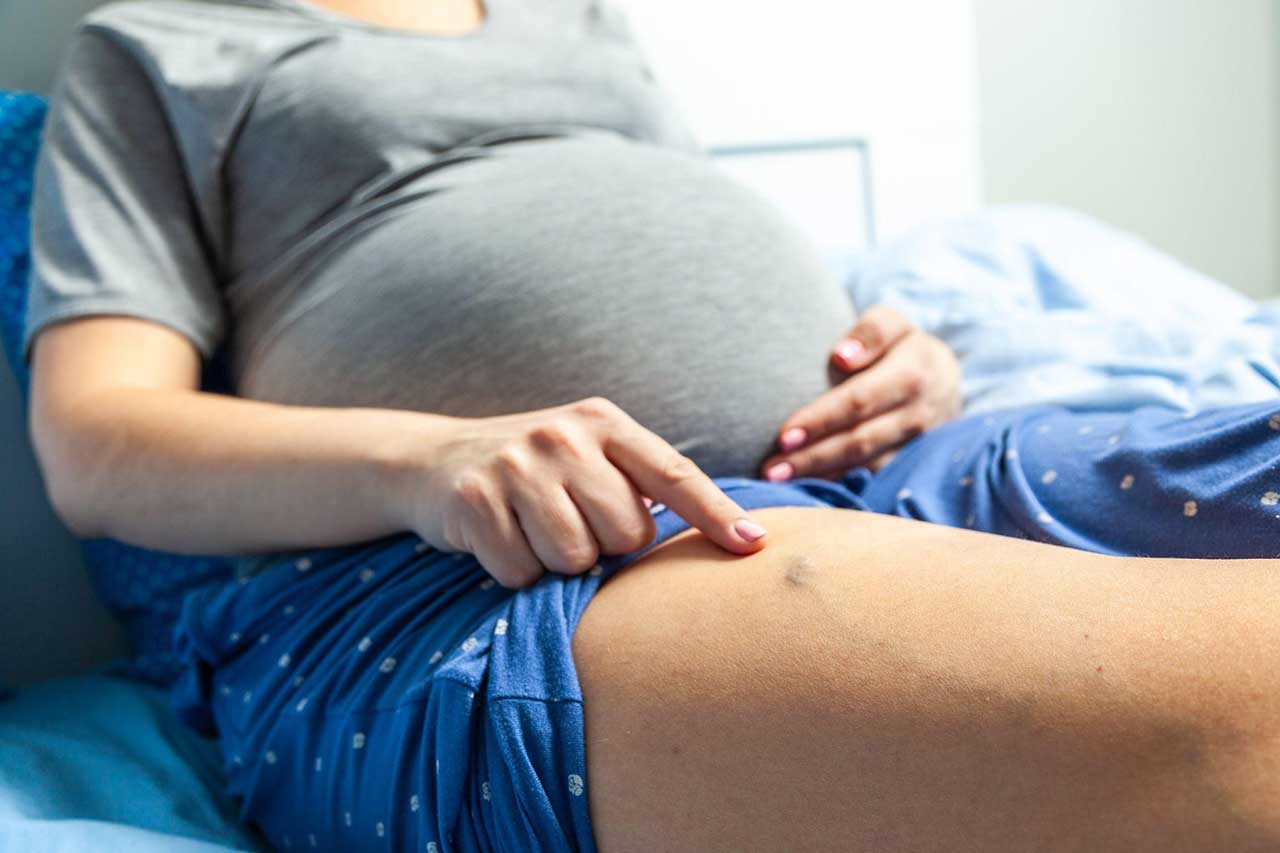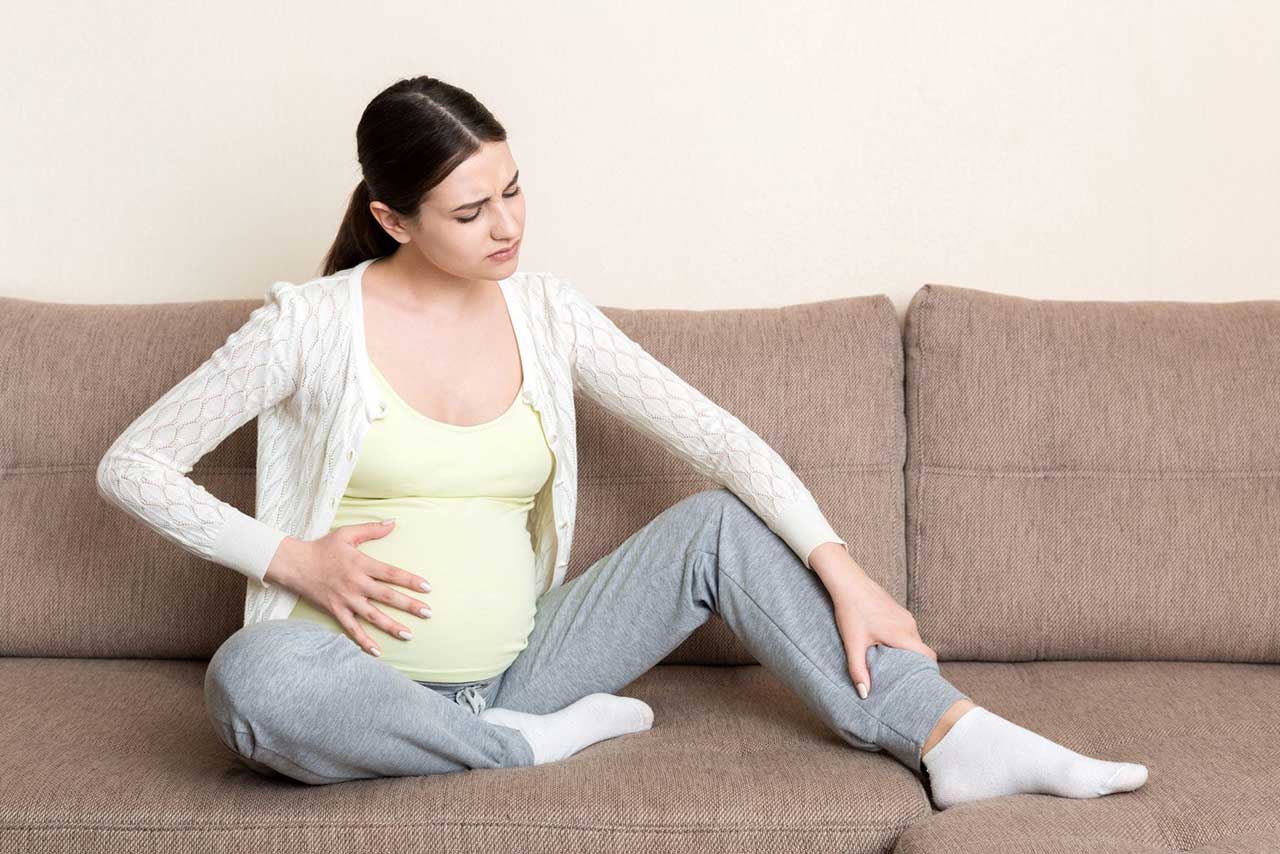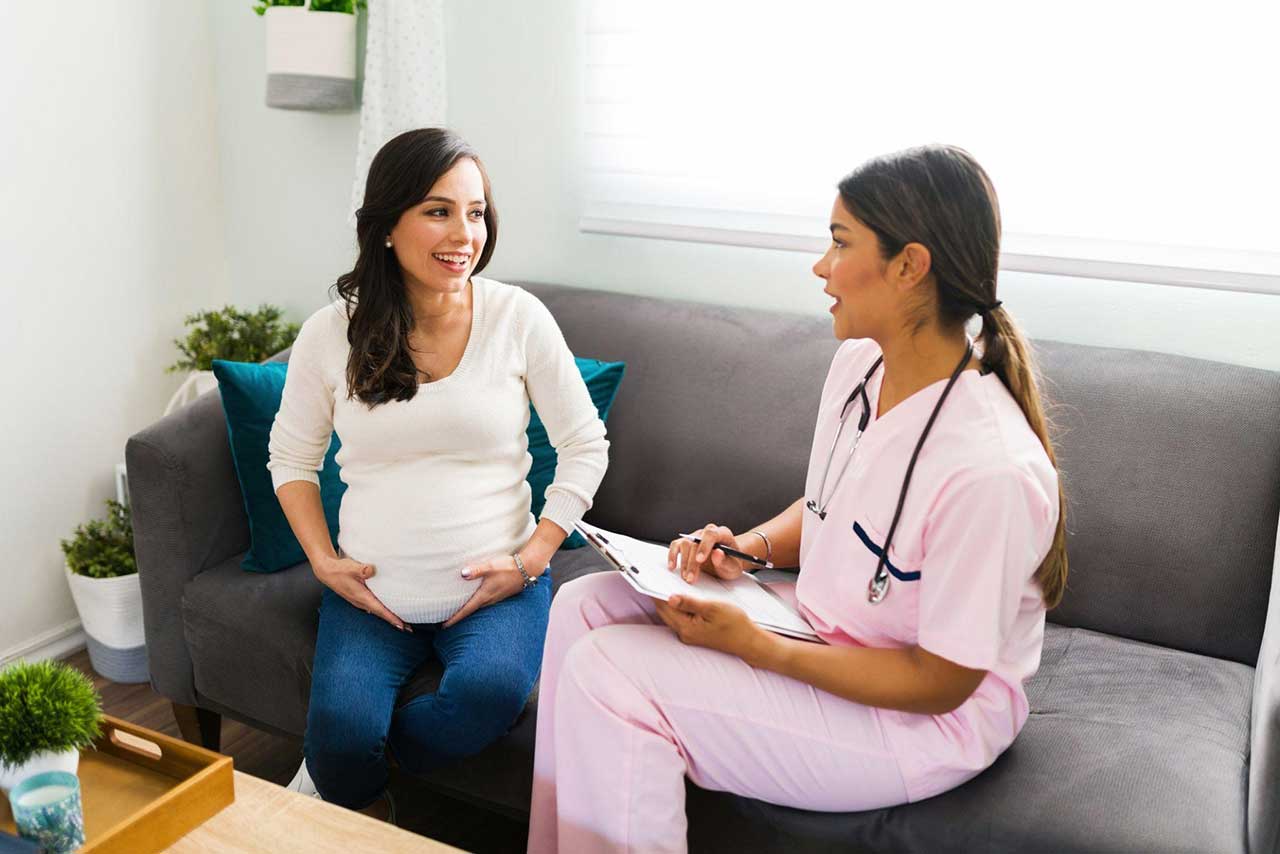Pregnancy: Venous Insufficiency, Varicose Veins, Spider Veins, and Treatment
Pregnancy: Venous Insufficiency, Varicose Veins, Spider Veins, and Treatment

During pregnancy, many moms may develop varicose or spider veins. Many women wonder how to relieve varicose veins in pregnancy because these conditions can cause some irritating symptoms. Sometimes these veins fade after pregnancy, but they may not always go away completely. When this happens, it leaves new moms wondering how to get rid of varicose veins after pregnancy. Similarly, if a new mom suffers from spider veins after pregnancy, they may want treatment.
At Heart of Dixie Vein and Vascular Center, we can help with the management of varicose veins during pregnancy and postpartum spider veins. We can also offer treatment if you’re suffering from venous insufficiency during your pregnancy.
In pregnancy, a woman’s body undergoes many physiological changes. The development of a brand-new baby leads to a significant increase in blood volume as the body adjusts to new growth and hormonal changes. Because of the increase in volume, the rate at which blood is taken back to the heart slows during pregnancy. This creates an increased pressure inside the veins, which are already working against gravity, to take blood from the legs back to your heart. In addition to large volumes of blood flow, there is also an increase in the hormone known as progesterone. A side-effect of progesterone is the weakening or relaxing of the vessel walls in your lower extremities. This weakening, along with a decreased speed of blood flow back to the heart, contributes to the development of venous insufficiency, varicose veins, and spider veins during pregnancy.
The last thing you need during pregnancy is leg pain and a loss of self-esteem due to these conditions. Here, we hope to offer some advice on what venous insufficiency is and how you can best avoid it during pregnancy.

As your body tries to accommodate these physiological changes, your saphenous veins may be greatly affected. Your upper thighs have both a greater and a lesser saphenous vein that help direct blood back to the heart. Connected directly to your saphenous veins is the largest vein in the human body called the Vena Cava. This vein travels from the heart under the abdomen and channels blood to the saphenous veins in the legs.
As your baby grows, so does the pressure on the Vena Cava. The increased pressure, in combination with progesterone, causes the saphenous veins to dilate. As the valves become separated, they can no longer prevent the backflow of blood, so blood can reflux or pool in the lower extremities. Due to the combination of these factors, you may develop symptoms such as leg pain, aching, burning, itching, heaviness, fatigue, and swelling.
If you are experiencing any of these symptoms during pregnancy, don’t hesitate to give us a call and schedule an appointment. A thorough vein mapping or ultrasound can identify venous insufficiency of the saphenous vein if such symptoms occur. Treatment such as compression socks, exercise, and leg elevation may help with symptoms, which we will discuss later. We also offer more technical treatment options such as radiofrequency ablation. This procedure may be necessary to close down dilated and refluxing saphenous veins, although it cannot be performed while you are pregnant.
“So glad I was referred to Heart of Dixie, Dr. Jones and Justin are great at what they do. The whole staff is great, almost like family”
Varicose veins are the large, swollen veins that often bulge near the surface of your skin. They can cause the surrounding skin to experience itching, burning, tenderness to the touch, or throbbing. Nearing the third trimester, as the progesterone and pressure increase in the veins, some vessels tend to develop tortuous symptoms and evolve into varicose veins. While varicose veins can develop at any given time during the first pregnancy, varicose veins tend to worsen with each subsequent pregnancy.
Varicose veins can fade away after giving birth, but the damaged vein does not dissolve or go away completely. This makes knowing how to relieve varicose veins in pregnancy and how to get rid of varicose veins after pregnancy important to many women. Treatment such as microphlebectomy, or removal of varicose veins through micro-incisions, is a simple solution to getting rid of varicose veins after pregnancy. At Heart of Dixie Vein and Vascular Center, we can help you remove your varicose veins.
To learn more about varicose veins
Telangiectasias, also known as spider veins, are also commonly noticed during pregnancy. While spider veins are harmless and typically asymptomatic, they can worsen during the long nine months that a woman carries a child. Spider veins on thighs during pregnancy are one of the most common areas where the condition develops. Pregnant women can also develop spider veins in clusters on the calves and ankles.
Spider veins are closely related to varicose veins. They are, in essence, widened blood vessels whose relaxed state allows blood to remain instead of returning to the rest of the circulatory system. If you have spider veins on your thighs, calves, or ankles, several treatments can help them fade. Very small injections of a sclerosant solution into the vein can make the appearance of these veins dissipate or fade significantly in most individuals. The sclerosant solution used in the procedure is a solution of salt and other ingredients that make veins tighten to maintain proper blood flow. If this is a treatment you would be interested in after pregnancy, give us a call to start discussing details of the procedure.

If you’re experiencing symptoms from veins during your pregnancy, you can relieve your symptoms in several ways. The following measures have proven effective in aiding in the management of vein-related changes and discomfort during pregnancy:
While all of these measures are effective and proven to help relieve discomfort and prevent the development of additional varicose veins, we know that 30% of women will develop venous insufficiency in their first pregnancy despite attempts to avoid it. Risk factors such as a family history of bad veins and hormonal changes during pregnancy are unavoidable. In these circumstances, Heart of Dixie can help you manage your symptoms and discomfort.
“Dr. Jones and Marissa Hughes are wonderful and knowledgeable and great about answering your questions and make you feel so comfortable during a procedure. I would highly recommend Heart of Dixie ♥️”

Although most symptoms such as discomfort and visible varicose veins occur during pregnancy, it is neither safe nor recommended to receive treatment during pregnancy. We recommend waiting three months postpartum if you desire immediate treatment. Heart of Dixie Vein and Vascular Center provides multiple treatment options such as radiofrequency ablation, microphlebectomy of varicose veins, and sclerotherapy for unsightly spider veins. To learn more about venous insufficiency and how to get rid of varicose veins after pregnancy, contact us today for our treatment options. We’ll help you schedule an appointment to start discussing your condition and the best treatment options for you. Members of our vein team will help you in taking the proper steps to restore health to your legs.